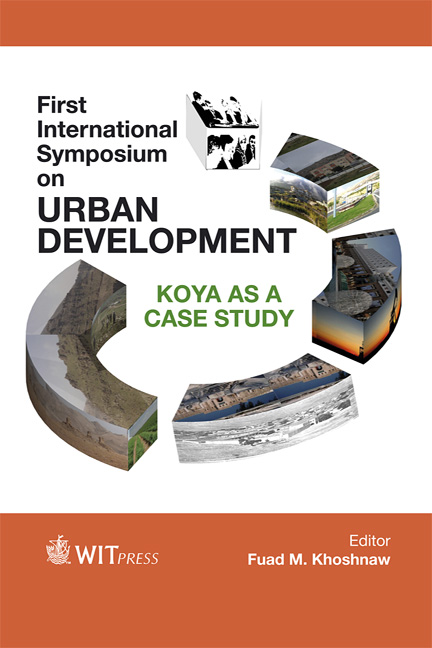Sunflower Oil Production By Utilizing Koya Province Agricultural Crops
Price
$38.00
Volume
77
Pages
8
Page Range
75 - 82
Published
2014
Size
309 kb
Paper DOI
10.2495/ISUD130091
Copyright
WIT Press
Author(s)
R. K. Abdulrahman
Abstract
In recent decades, the Kurdistan region of the Federal Republic of Iraq has faced huge developments in several life aspects; for instance, education, economic and the industrial sector. However, the industrial sector may still restricted in oil and gas industry. In fact, industrial developments have a huge rule in small cites developments and it has contributed in small cites’ developments for instance, many of China’s small cites have developed into huge cites in a few decades by the supporting of industrial sites . Indeed, establishing and operating several small projects for example, a sunflower oil factory, mineral water factory and tomato sauce factory will helps cities and counties with funding for housing, infrastructure and commercial rehabilitation that benefit people of low and moderate incomes. Sunflower oil may be considered one of the most important vegetable oils in the world. Its demand has been dramatic in recent years. Indeed, sunflower oil has several advantages over other vegetable oils and fats; for instance, high vitamin content, it is cholesterol free and has a nice flavor . Sunflower fields may be considered sustainable oil fields. Each year the agriculture land can produce thousands of metric tons of sunflower seeds that are saturated with high quantities of fresh oil. Indeed, Koya province possesses huge mails of green agriculture lands that depend on rainfall water. Therefore, this study aims to focus on sunflower oil factory projects in Koya city and its rules in Koya city developments as a part of a Koya city urban development workshop. The study showed that this project will have a huge impact on Koya city developments and economics as well. Moreover, the net profit of the produced fresh oil has been calculated without process operation cost which is about $391 for one metric ton of seeds per one hour.
Keywords





